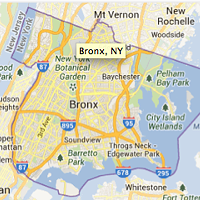In the days after the presidential election, I became intrigued by the racial backlash that permeated my Facebook newsfeed, which included statements such as, "Our way of life is being threatened" and "Obama only won because of 'gifts' he gave to minorities."
The media has reported more extreme Facebook post-election reactions, such as the young California woman fired from her job and under investigation by the Secret Service for calling the president the N-word and wishing for his assassination. That is some serious hateration, but it's not what I'm referring to in this column. Instead, what I am more concerned with are the subtler so-called political statements that barely conceal more ominous racial undertones like, "Taking our country back," which I believe really translates into, "We don't want the country back — we want it to ourselves."
These statements didn't come from strangers or from fringe groups; they were from my associates, maybe not close acquaintances, but certainly people I know. Even more surprising to me, many came from young people. Much of what I saw seemed innocuous until I visited the posters' walls, which contained more inflammatory rhetoric. I found that the seemingly benign statements were actually drone bees sent out from hives.
To get a read on this phenomenon, I turned to my good friend Jerry Miller, a Ph.D. of philosophy, who frequently writes on issues of race. He told me that the dominant culture's sense of superiority in this nation has created our societal and historical concepts of racism. The kind of post-colonialist racial hysteria I was observing on Facebook, he suggested, comes from a position of feeling under attack, or as some expressed on their walls, fearing extinction.
As a mentor, I have spoken to many young people about the difference between formal and informal voice. Many of us vacillate between the two very naturally; our speech and demeanor change when we are in a more familiar group versus one of mixed company. But for some people, Facebook has become the living room in their homes, where they feel at ease expressing their views. Some folks seem to forget or not care that Facebook is not only a public forum — it also archives our commentary.
I found everything from references to the president as the N-word to "retarded"; contemplations of leaving the country or secession; and my personal favorite, calls to action for whites to stick together to avoid extinction. The last reference is the most interesting because it calls into play the concept of being "the other."
If you are part of a marginalized group, then you are very accustomed to being "the other." Based on this Facebook fodder, some white folks seem braced to become "the other" overnight, moving rapidly from their historical place of privilege to acting as though they are victims. Sure, the demographic makeup of this country is shifting, but the historical hierarchy of power will not be redistributed just like that. Therefore, this irrational fear of becoming the other is unfounded or at least premature. Plus, trying to quickly become the other is like trying to join a fraternity without going through the ritual of pledging: You cannot truly appreciate the others' perspective unless you have endured a long period of marginalization.
Political analysts on CNN and MSNBC often speak of the minority populations that are changing the racial landscape in the U.S. I experienced this on a micro level growing up in a predominantly African-American neighborhood in Houston, where today both the elementary and middle schools I attended are predominantly Hispanic. For some of the Facebook posters, such radical change is a terrifying thought. Why?
The ugly truth is that some folks in this country have historically dealt with an unrealistic fear that after the middle passage and slavery, there would be some kind of uprising from the oppressed. Thomas Jefferson expressed such sentiment when he wrote, "I tremble for my country when I reflect that God is just: that his justice cannot sleep forever: that considering numbers, nature and natural means only, a revolution of the wheel of fortune, an exchange of situation, is among possible events."
Well, news flash folks — between gangs, high blood pressure, diabetes, obesity and consecutive seasons of Basketball Wives, minorities have more than enough on their plate to worry about than getting back at white people. Maybe for folks who cling to the nostalgia of how things were in this country, the fear is not motivated so much by a threat of extinction as by a guilty conscience.
Charles Easley is a seasoned educator with a background in communication studies and media production. He is a columnist who explores race, class, gender, sexuality and culture, occasionally tempered with humor and insight.
